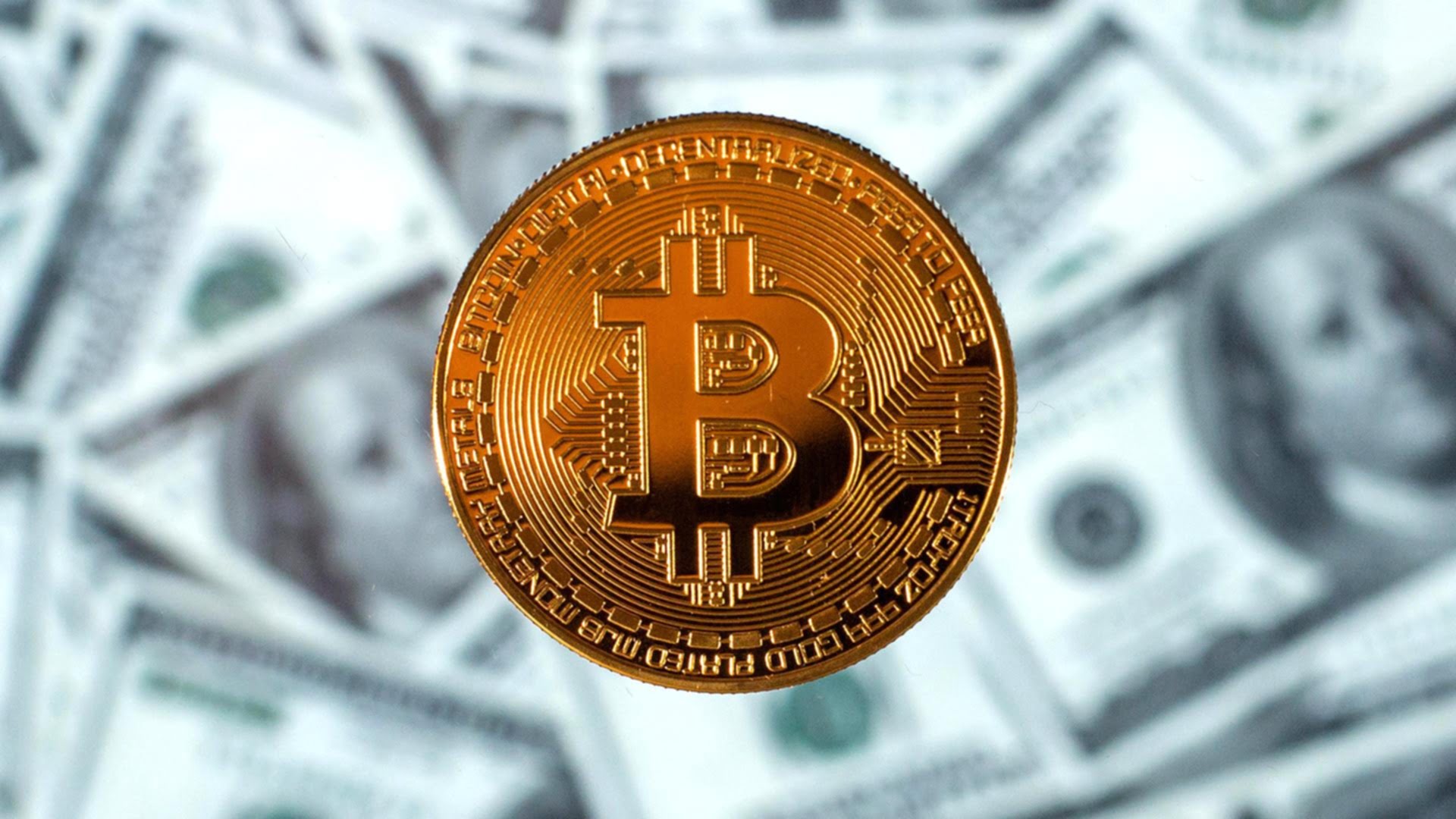Content
Unlike centralized exchanges, decentralized exchanges act as autonomous decentralized applications running on public distributed ledger infrastructure. They allow participants to trade cryptocurrency without a central authority. Cryptoexchanges are platforms that enable users to trade one cryptocurrency for another.Centralized exchanges are crypto exchanges that act as intermediaries between buyers and sellers.
- Before investing the hard-earned money it is important to understand the type of exchange we are using for our cryptocurrency investments.
- In our crypto guides, we explore bitcoin and other popular coins and tokens to help you better navigate the crypto jungle.
- Centralized exchange vs decentralized exchange comparison is that DEXs have addressed many shortcomings in centralized exchanges.
- Their aim is to give end users the convenience of a centralized exchange while also giving them the security and freedom of a decentralized exchange.
- While the crypto industry has been fraught with fraudulent exchanges and Ponzi coins, Coinbase has avoided controversy.
- The following are the top centralized cryptocurrency exchanges, according to traffic, liquidity, and trading volumes.
- If the user is an organization, then it must provide some corporate information for the process of verification.
It is choreographed to ensure we gather an in-depth understanding of your idea in the shortest time possible. We have developed around 50+ blockchain projects and helped companies to raise funds. However, before you can utilize the facilities given by the exchange, you must first submit your personal information for verification.
Why Should You Choose Decentralized Exchanges?
A hybrid exchange combines the strengths of both centralized and decentralized exchanges. It facilitates the centralized matching of orders and decentralized storage of tokens — this means a hybrid exchange cannot control a users’ assets and has no way to stop someone from withdrawing funds. Simultaneously, a fast centralized database manages order information and matching trades instead of using potentially slow blockchain infrastructure. Centralized and decentralized exchanges both exist to enable users to trade digital assets.
One top address holds 30% of the total supply, and the top 20 addresses hold more than 50%. Like the validators, there is not an absolute number as a benchmark that everyone agrees on. Provide superior customer service in order to attract and retain users.
How decentralized exchange works?
Centralized exchanges give their platforms greater control over their users, which is why DEXs have become so popular today. Most crypto traders want to use exchange platforms that offer autonomy. As of February 2022, CEXs are still far more common than decentralized exchanges . KPMG found that they accounted for around 95% of exchange crypto trading. The largest crypto exchange in the world is Binance, which is centralized although it has launched its own DEX.
1/
💭 What is @V2X_GG ?@V2X_GG is the next generation’s Decentralized Perpetual Exchange on @arbitrum which is created by a team of #DeFi believers whose goal is to create an effective replacement for centralized entities that negate the sustainability of the #Crypto Market. pic.twitter.com/MHCEycnjGM— BitByte Crypto (@officialbitbyte) December 12, 2022
Several do not report basic information such as the names of the owners, financial data, or even the location of the business. They are generally much more difficult to use, have limited functionality compared to centralized exchanges, and are characterized by lower trade volume. And most importantly, users cannot use fiat money (EUR, USD, etc.) to buy cryptocurrencies. You might have assumed that DEXs are the winners when it comes to liquidity, especially owing to the use of liquidity pools in AMM DEXs. However, there are many other concerns that affect the liquidity of decentralized exchanges.
How does a Decentralized Exchange Work?
What is the difference between CEX and DEX” in the assurance of user anonymity with decentralized exchanges. The two notable categories of decentralized exchanges include order book DEXs and automated market makers or AMM DEXs. The first generation of decentralized exchanges followed the conventional order book model used in centralized exchanges. For example, most centralized exchanges offer margin trading, which allows you to trade with leverage.

CoinDCX also comes up with regular blogs to ensure that users are aware of how and what to do to protect their data from infringement. A crypto exchange is a multi-layered system with many components, such as a user-friendly https://xcritical.com/ web interface, a dashboard for exchange managers, a mobile app, a trading engine, and many more features. It does not need you to transfer cash to a wallet or any trading accounts to complete transactions.
How to trade on a crypto exchange
In a market catastrophe, an exchange that provides insurance might protect its investors from damages, although such plans are uncommon and often not comprehensive. As a result, it’s essential to do your homework before selecting any crypto exchange. Crypto exchanges are open 24/7, unlike traditional stock market exchanges with fixed trading hours.
That is their greatest advantage, but it also comes with a number of drawbacks; customer support is not on their side. This has led a lot of crypto investors to look for alternatives to centralized exchanges. The obvious alternative are a newer type of exchange that is decentralized such as Uniswap and Pancakeswap. These decentralized exchanges radically rethink how exchanges can work. As of 2020, CEXs are the most widespread mode of operation for cryptocurrency exchanges. The speed and cost-efficiency of processing transactions by a single point of authority make them a convenient venue for day traders and crypto investors to purchase and sell crypto.
The ASIC viewed the services offered as legally requiring an Australian Financial Services License, which the companies lacked. Like cryptocurrencies, no company operates DEXs, as they are utilizing blockchain technology. They don’t store the customers’ funds or information and only serve as a matching and routing layer for trade orders.
Our Crypto Exchange Development Services
A centralized exchange like Kriptomat must follow the regulations and perform identity verification of its users. A centralized cryptocurrency exchange includes intermediaries such as companies that act as middlemen to conduct transactions. A decentralized exchange is a market that doesn’t rely on a third-party service to hold the customer’s funds. Trades occur directly between users in a peer-to-peer manner via an automated process.
This makes them appealing to anyone who wants to do business without going through a bank. Instead, decentralized employ smart contracts, which are algorithms that execute themselves whenever specific criteria are satisfied. This article outlines how decentralized exchanges work, the different types of DEX, and the benefits and risks they what exactly is a centralized crypto exchange bring to the cryptocurrency ecosystem. A major flaw of decentralized exchanges is that they make it very difficult to get cash quickly. Given the smart contracts in use are efficiently created and have been through the proper security audit procedures, decentralized exchanges can ensure even more security than centralized exchanges.
Once you've made a crypto wallet, you can log in to your preferred crypto exchange and see the market values of various cryptocurrencies. The exchange is among the top platforms in terms of cryptocurrency asset support, as it enables users to convert fiat currency into a wide variety of cryptocurrencies. In addition to operating as an exchange, Bittrex also features an online wallet that supports multiple cryptocurrencies. As a leading provider of business accounts for digital assets in the industry, partnering with top-tier crypto exchanges like Bitstamp and FTX, we often discuss how the landscape of exchanges will evolve. Governments and regulators, on the contrary, have no influence on decentralized exchanges.

Centralized cryptocurrency exchanges are broker-based digital currency exchanges where traders rely on a trust-based ecosystem to exchange cryptocurrencies. We use the most advanced distributed ledger and blockchain technology, we build decentralized crypto exchange platforms that offer frictionless user experiences and robust security. Centralized and decentralized exchanges aim to achieve the same goal but through different means. For centralized exchanges, there is an element of human management supervising exchange activities. DeXes rely on automated transactions through smart contracts and liquidity pools. Therefore, the third-party supervision of exchange activities is limited.
Key Elements of Centralized Exchanges
It also offers multiple cryptocurrencies for trading across different spot and derivative markets. The exchange also provides crypto lending and borrowing and even has its staking services and mining pools. Most centralized exchanges use a business model similar to traditional institutions like the New York Stock Exchange, which is a structure traditional investors understand and may feel more comfortable with. Their interfaces and apps tend to be more beginner and user-friendly and generally offer more liquidity and stronger regulatory assurances, which can be especially important for institutional clients. But it also means the central company running the exchange has a lot of power and responsibility for the financial stability and health of the exchange.
Firstly what is a centralized exchanges (CEX)?
CEXs are platforms that allow users to buy and sell their crypto assets .These exchanges act as a trusted third party to facilitate transaction between a buyer and a seller as opposed to the main purpose of decentralization.— 0xMusteee ♟️,♟️, 3,3 (@IamMusteee) December 14, 2022
Lastly and most importantly, most CEXs will hold your digital asset as a custodian in their own digital wallet rather than allow you to store your private keys on your own digital wallet. While more convenient when you want to trade, there are drawbacks, namely the risk of the centralized cryptocurrency exchange failing and fraud. A cryptocurrency exchange is a platform that allows customers to trade cryptocurrencies or digital currencies for other assets. Other data points in the survey included the problems that cryptocurrency traders experience with cryptocurrency exchanges and the expectation of traders.
Depending on the exchange, you can purchase crypto using a fiat currency like the U.S. dollar, or trade one form of crypto for another. A cryptocurrency exchange is simply where buyers and sellers can trade crypto. If you want to trade crypto, you need to do it via a crypto exchange because, at least for now, very few traditional investment firms offer crypto.
It turns out that the mainstream crypto user today prefers this format of interaction with their holdings. At the same time, decentralized exchanges have also come up with some unique issues of their own. Therefore, you need a detailed comparison between CEXs and DEXs on the grounds of specific factors pertaining to their usability.
 Prirodna Medicina Vaše zdravlje je naš prioritet
Prirodna Medicina Vaše zdravlje je naš prioritet



